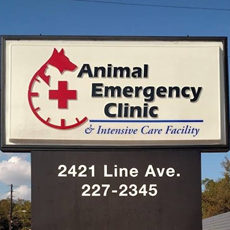Library
-
Brimming with charm, an infectious zest for life, and energy most people can only sit back and envy, the Lakeland Terrier makes a great family pet, keeping everybody entertained with his curiosity and the many adventures he manufactures for himself.
-
Laminitis is a common but still incompletely understood condition that causes varying degrees of foot pain, from the slightly pottery pony to severe life-threatening lameness.
-
Laryngeal paralysis is a condition in which the larynx can’t open all the way, causing it to partly block the trachea. It can be a congenital condition of young dogs or due to a neuromuscular disease in older dogs. Clinical signs include coughing, noisy breathing, and exercise intolerance.
-
Laser surgery is a procedure in which a beam of light energy is generated at a specific wavelength, resulting in the cutting of tissues. Laser surgery has major advantages when compared to traditional surgery, including decreased pain, decreased inflammation, and improved tissue healing.
-
Leishmaniasis is a disease caused by a protozoan parasite transmitted by sandflies and is most commonly seen in the Mediterranean, Middle East, and South and Central America. It has been reported in some parts of the United States. Clinical signs include hard skin nodules, weakness, decreased appetite, vomiting, diarrhea, and more. Diagnosis is based on travel history, clinical signs, and diagnostic testing. The goal of treatment is to resolve clinical signs. Prognosis is guarded to grave depending on the severity of the disease.
-
Gentle, calm and friendly, these good-natured watchers make excellent family dogs. They are affectionate and incredibly patient with children, love to be included in family activities, and will wait patiently if you stop to talk on an outing. They are calm indoors and their affectionate personality makes them excellent therapy dogs.
-
These not-so-fragile small dogs are even-tempered and adapt well to most human environments, especially city life. They do not yap at any noise or movement they hear or see, and are not nervous dogs. Despite the glamorous look of their well-groomed coats, they often display clown-like behavior with a delightful and entertaining desire to play.
-
Lick granuloma in dogs, also known as acral lick dermatitis, is a condition manifested as chronic licking of an area of skin, usually on the forelimbs. This condition is thought to be both physical and psychological in nature. While the condition can be frustrating to get under control, most cases of lick granulomas can be successfully treated if the owner is willing to pursue extended tests and treatments.
-
Liver disease can occur in any avian species but is most common in cockatiels, budgies, Amazon parrots, lories, and mynah birds. Because the typical clinical signs are non-specific and descriptive of many different diseases, diagnostic tests are highly recommended. Treatment options depend on the diagnosis and can range from diet modification to hospitalization.
-
Primary liver tumors in dogs and cats are rare. There are 4 types: hepatocellular tumors, bile duct tumors, neuroendocrine tumors, and sarcomas. These cancers can be massive, nodular, or diffuse in form. In dogs, most liver tumors are malignant, while in cats, most are benign.




